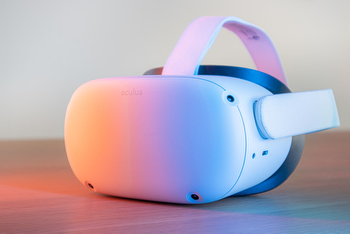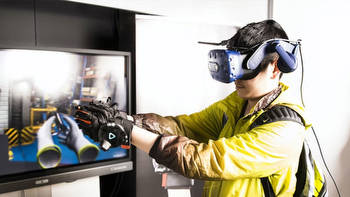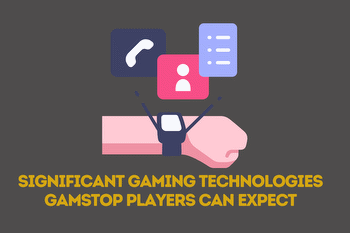The casino industry’s technological revolution

The casino industry is rapidly changing with new technology. But is this tech designed ethically? Read more about the impact of the casino tech revolution.
A technological revolution is sweeping the casino industry as operators fast-adopt innovations, including virtual reality (VR), facial recognition, blockchain, and mobile apps. The technology is not only disrupting customers' gambling experience but also posing urgent ethical and regulatory questions about problem gambling and consumer safety.
Engrossing Virtual Reality Games
Virtual reality enables players to engage in artificial casino environments fully and games using VR headsets. Some providers offer VR casino games featuring the real-life sights and sounds of slot machines, poker, and roulette.
Market research firm The Business Research Company predicts that the virtual reality gambling market will grow from $115.26 billion in 2023 to over $1.62 billion in 2024. Such estimated growth implies that VR games will likely become more prevalent in online and brick-and-mortar casinos as technology improves.
Although VR makes gambling more tangible and engaging, researchers say it could encourage thoughtless gambling by psychologically distancing players from reality. A 2019 Research Gate study showed that test participants made more spontaneous betting choices in a VR casino setting than in a 2D simulation.
Emergence of Augmented Reality
Unlike virtual reality, which substitutes the real-world environment, augmented reality (AR) superimposes digital components in the real world. Online slot games and casino operators are now starting to dabble with AR apps, such as displaying real-time odds on tabletops or providing mini-games for customers standing in queues.
In the future, AR glasses may allow players to see data overlays, interact with avatars, and play augmented casino games in a smooth blend with their natural physical environment. Ari Grobman, the CEO of Lumus, says that smart glasses that will allow people to experience AR will likely be effective by 2025.
However, experts say AR has the same addictive potential as VR, transporting users to other environments that disconnect them from reality. Some regulators, such as the UK Gambling Commission, already worry about possible ethical dilemmas in AR gambling apps.
Skill-Based Games Gaining Popularity
Casinos must attract a new generation of players looking for a more engaging and immersive experience. Skill-based games combining elements of arcade, video, and gambling games are being introduced in casinos. Players can now use their skills to actively influence the outcome of the game in first-person shooter, arcade-style racing games.
For example, GameCo has developed skill-based gaming machines featuring games called “Danger Arena” and “Nothin’ But Net” that are similar to popular arcade and video games. Other companies have followed suit. For example, Gamblit Gaming is now also providing skill-based gambling machines.
However, according to Dr Mark Griffiths, a professor of behavioral addiction at Nottingham Trent University, slots promoted as “skill-based” could be “misleading to the consumer” as the game still contains a significant chance element. Regulators may need to step in to clarify the difference between games of skill and chance.
Using Blockchain Technology
Soon, blockchain can power payments and provide transparency and security to all casinos. Cryptocurrencies allow players to play directly with digital casino chips like Bitcoin, with no payments processed by banks or credit card companies. Some online gambling sites are even operating entirely on crypto.
Furthermore, blockchain technology can also help casinos securely store payouts and results. Information is stored on decentralized public ledgers, and blockchain technology provides auditable, perfectly fair gambling. There are even some blockchain gambling casinos that use the technology to provide provably fair gambling.
Sadly, the broader use of blockchain technology may exacerbate issues like compulsive gambling and money laundering, as cryptocurrency transactions are mainly anonymous. Bitcoin and other digital currencies can also be used to access online gambling from anywhere at any time — bypassing the usual restrictions of land-based gambling.
Mobile Gaming
Casinos are increasingly optimizing their websites for mobile device users to reach customers wherever possible.
Mobile platforms accessible via smartphones and tablets are generating as much as 60% of the world’s casino game revenue today — a massive increase from past years.
However, mobile access to gambling is also causing concerns about compulsive gambling and youth access. Strong additional consumer protection may be needed as gambling moves to smartphones and tablets 24/7.
Facial Recognition Tech
A few online casinos have started using facial recognition, partly to identify people who might risk the casino's security, including any potential visitors who are banned and known criminals. However, digital rights groups are starting to question the issue of consent and privacy.
For example, Las Vegas casinos’ facial recognition tech includes thousands of cameras recognizing guests and employees at entrances and other key points. Any blacklisted visitor that enters a land-based casino is immediately detected and approached.
That’s likely effective for casino security, but groups like the Consumer Rights Protection Agency point out that widespread facial recognition also lets casinos monitor all their customers around the clock.
Casino players should know that casinos' use of facial recognition technology is just one more way that tech innovation has run ahead of privacy regulations. So, legislators may need to look for ways to address new challenges as adoption grows.
Making Use of Big Data and AI Tech
Sophisticated data mining enables casinos to model and analyze customer behavior to personalize promotions, improve retention, and target high rollers. Players’ spending, win and loss profiles, game selections, risk tolerances, and other activities can all be monitored through loyalty cards, surveillance, and other tracking systems.
This article was written in cooperation with Angelique Visser








































